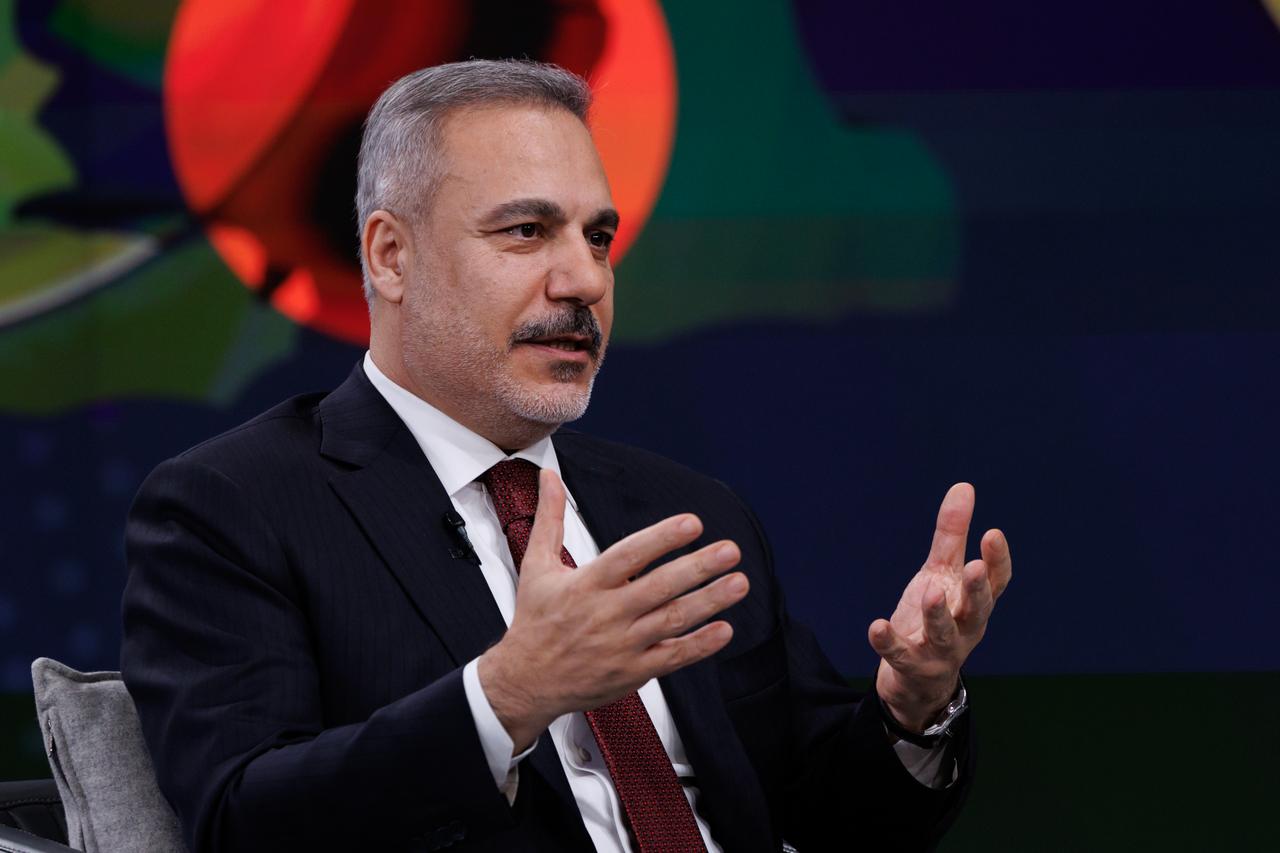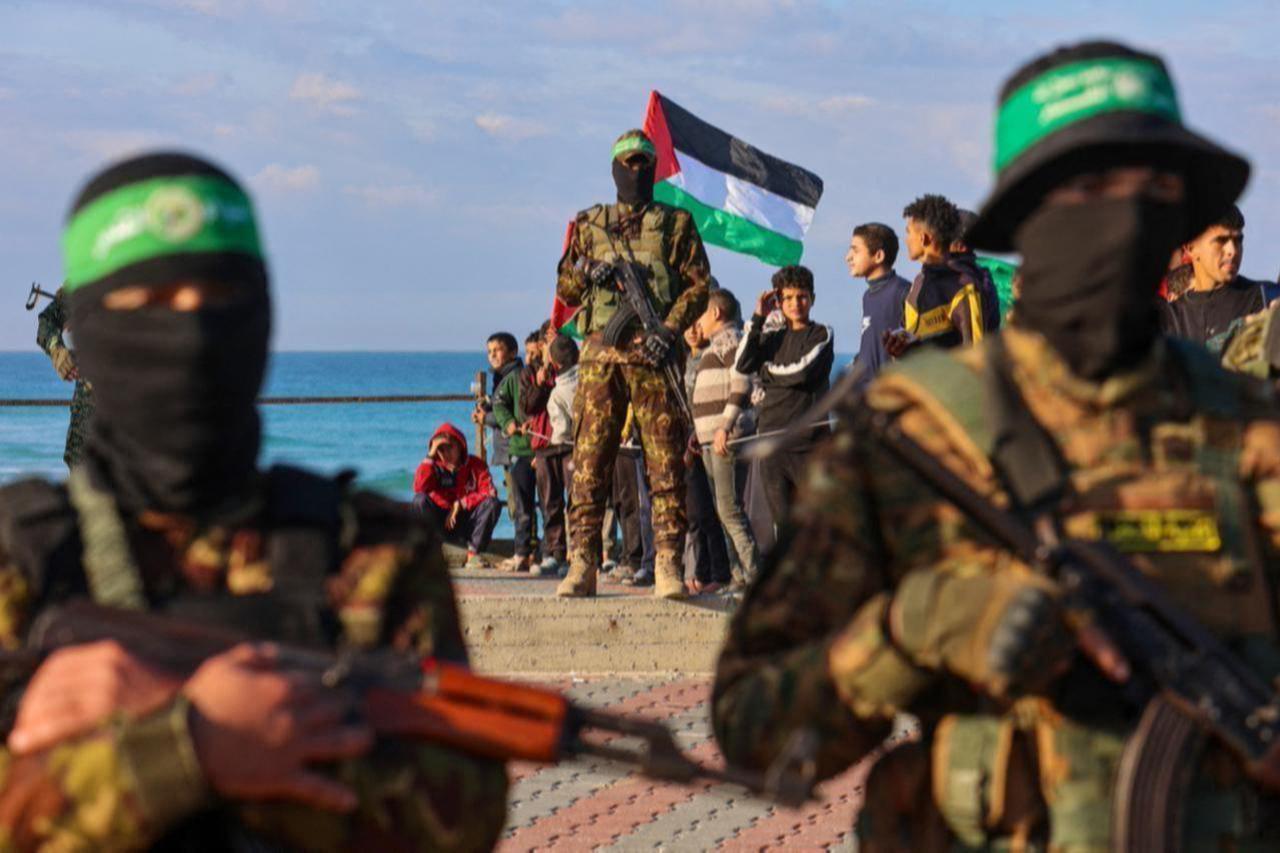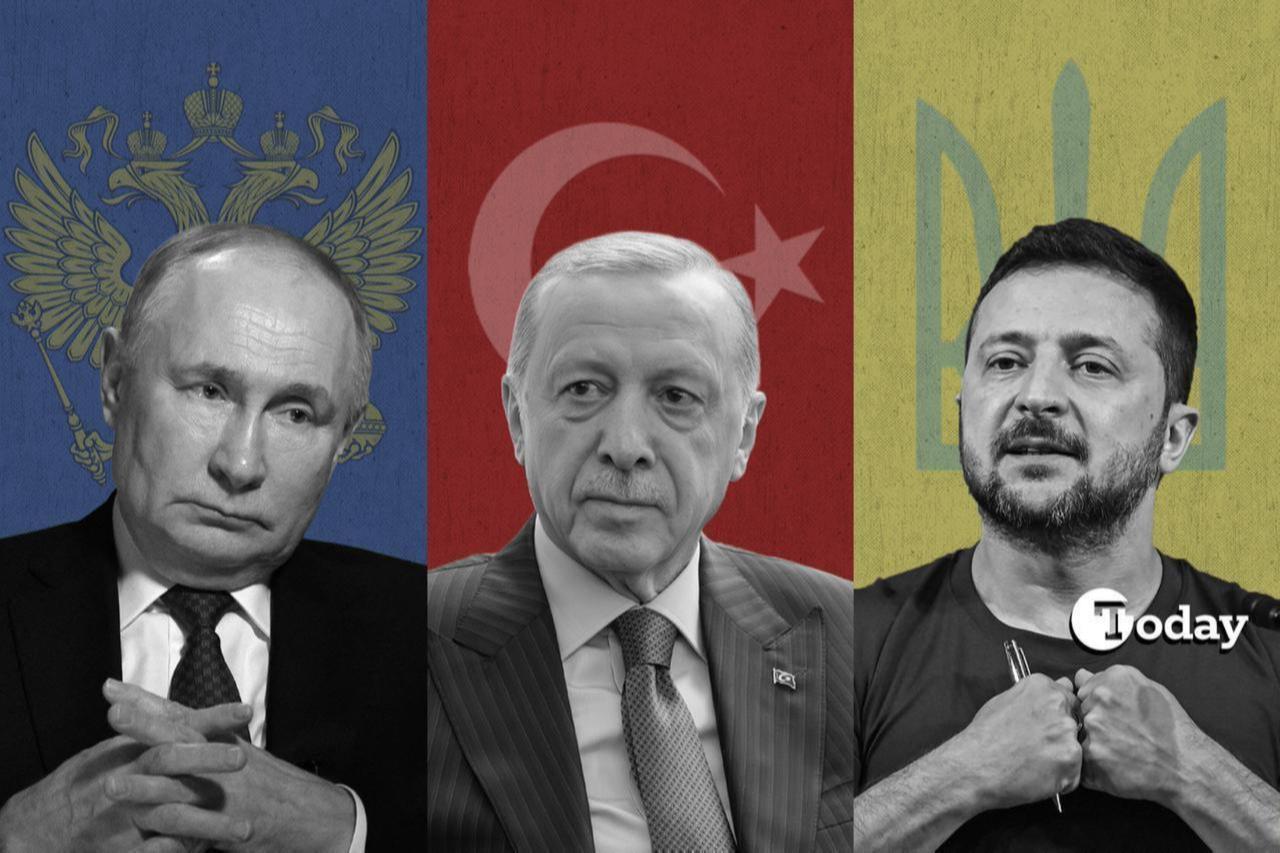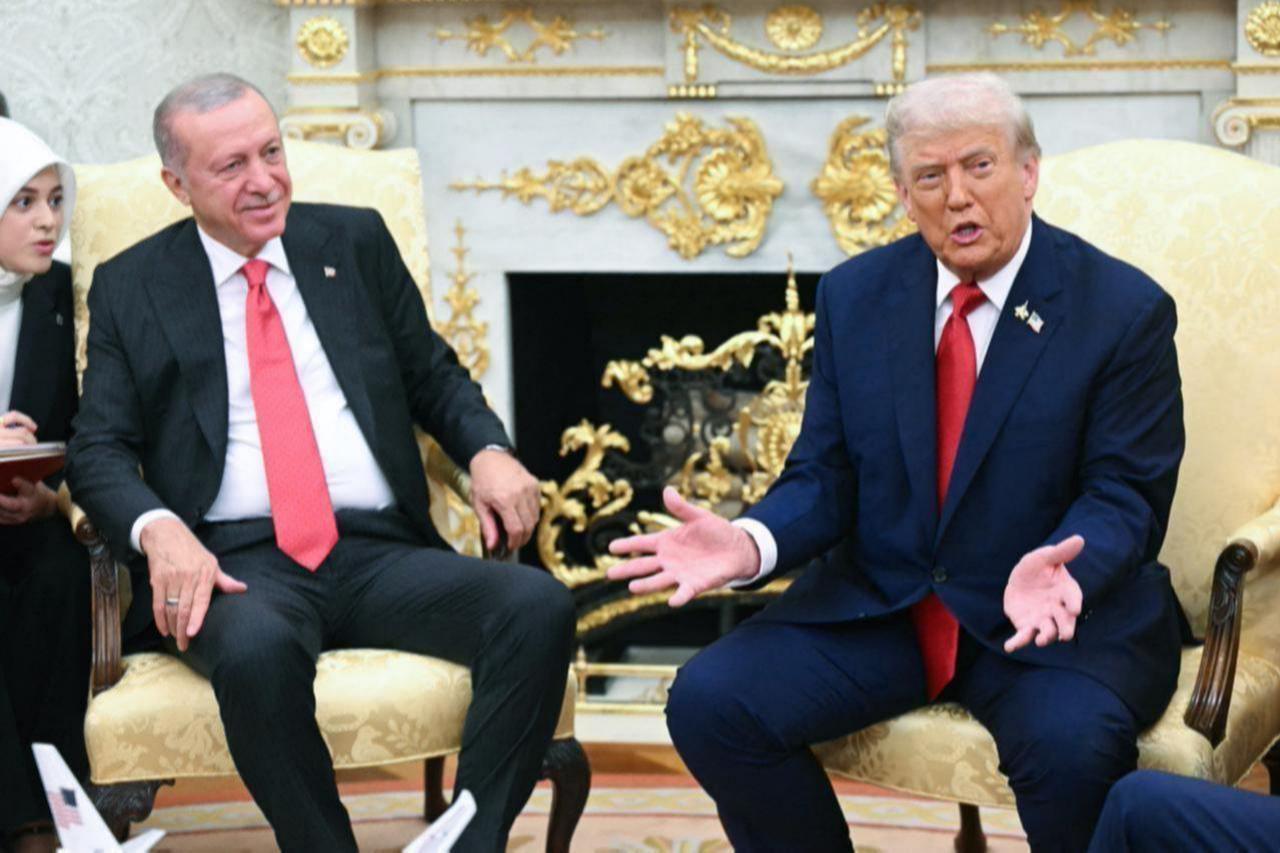
Türkiye is prepared to assume an active role in stabilizing the Gaza Strip, including the potential deployment of troops, and also sees conditions emerging for a ceasefire in the Russia–Ukraine war, Foreign Minister Hakan Fidan said during a televised interview on Saturday.
Fidan stated that Türkiye is ready to shoulder responsibilities in Gaza "with a great sense of duty," including the possible contribution of forces to an international stabilization force, pending the establishment of legal and diplomatic frameworks. He emphasized that this reflects Türkiye’s clearest message to the global community regarding the post-ceasefire environment in the enclave.
The statement follows a series of diplomatic efforts that include Türkiye’s involvement in talks with Egypt, Qatar, and the United States to uphold the Gaza ceasefire agreement.
Fidan confirmed that Ankara appointed a humanitarian aid coordinator and continues to deliver assistance, despite ongoing logistical challenges and lower-than-expected aid volumes entering Gaza.
Fidan noted that discussions are underway to establish a peace commission and an International Stabilization Force in Gaza, which forms part of the phased Trump Peace Plan. He confirmed that a U.S.-coordinated Civil-Military Coordination Center (CMCC)—launched on Oct. 17 in Israel—is already monitoring developments.
The CMCC represents the first international operational platform created by the U.S. Central Command in the region following the ceasefire.
Fidan described Washington’s move to activate the CMCC as a positive sign of commitment, while also noting that Türkiye is continuing dialogue with relevant military authorities to coordinate ongoing stabilization mechanisms.
He said that proposals to govern Gaza include forming a non-political, Palestinian-led administrative body—an arrangement to which Hamas has signaled readiness.
Addressing the broader political framework, Fidan argued that focusing on disarming Hamas misses the core issue of Israel’s occupation.
He emphasized that resistance to occupation would continue under any name and stressed the importance of establishing mechanisms that reduce oppression and pave the way for a two-state solution.
"There is a reaction that stems from portraying Hamas as if it were a terrorist group like Daesh," he said, adding that Türkiye’s diplomatic approach seeks to dismantle misleading perceptions and offer more balanced narratives in international forums.

Turning to the Russia–Ukraine war, Fidan said the conflict has evolved into a "war of attrition," with both sides incurring heavy human and infrastructure losses. He described the war as "its closest point to stopping," citing the increasing cost of continued fighting for all parties.
Fidan underlined that European leaders also want the conflict to end, as the war has reached "its darkest moment," with both Russia and Ukraine targeting critical transportation and energy infrastructure. He added that the battlefront has largely stagnated and shifted to drone warfare.
He acknowledged that the conflict is producing mounting political and financial costs for Europe, including rising defense expenditures and economic pressure on governments. Fidan said this trend is unsustainable, with consequences already visible in several European leadership changes since the war began.
Türkiye remains engaged in facilitating peace efforts and believes a diplomatic platform for negotiations—whether hosted in Türkiye or elsewhere—is inevitable, he said.

Fidan also discussed recent developments regarding U.S. sanctions under the Countering America’s Adversaries Through Sanctions Act (CAATSA), imposed on Türkiye in 2020 following its purchase of the Russian S-400 missile defense system.
He said that U.S. President Donald Trump, during a September meeting with President Recep Tayyip Erdogan, expressed a clear will to resolve the CAATSA issue and directed the U.S. bureaucracy to work on lifting the sanctions.
Fidan framed Trump’s stance as a result of his confidence in Erdogan and said a solution could be reached if there is sustained goodwill between the two countries.
Fidan added that Türkiye continues to push for a resolution that aligns with its interests and pointed to proposals, supported by the Turkish president, that may be shared publicly in due course. However, he acknowledged that a resolution would also require congressional cooperation due to the legal complexity of the CAATSA legislation.
Türkiye was also suspended from the U.S. F-35 fighter jet program in 2019 over the S-400 acquisition, which Washington claims poses security risks. Türkiye has rejected this argument and proposed a joint commission to examine system compatibility. Ankara has reiterated that resolving this dispute would benefit NATO as a whole.
Meanwhile, a $23 billion deal involving the sale of F-16 jets and modernization kits to Türkiye, approved by the U.S. State Department last year, remains pending.

Fidan emphasized the need for a coordinated and balanced U.S. approach to Syria, stating that "it is extremely important that the U.S. support order, prosperity, and stability" in the country. He underscored Türkiye’s long-standing efforts in Syria, including stabilizing northern regions, facilitating refugee returns, and supporting administrative structures seeking international legitimacy. He described these efforts as "rarely seen in history" and said they reflect "a moral and dignified policy."
Fidan noted that Türkiye’s policy toward Syria is rooted in protecting territorial integrity and prioritizing regional well-being. "Our presence in Syria is natural," he said, "because solving Syria’s problems benefits not only Türkiye but the broader region." He stressed that Türkiye aims to act collectively with regional partners, stating, “Only states with a deep strategic culture can adopt such an approach."
A key topic in Ankara’s discussions with Washington, Fidan said, is the role of the PKK/YPG, which operates under the SDF umbrella in Syria and is designated a terrorist organization by Türkiye. "We expect the U.S. to build a shared understanding on this issue," he said, pointing to Washington’s past "political investments" in the group under the pretext of countering Daesh. He cautioned that resolving this matter would require "care, order and patience."
Fidan also addressed recent developments involving contacts between the YPG and the Assad regime in Damascus. He confirmed that the talks were disrupted following Israeli interventions in southern Syria, which he said particularly targeted the Druze community. "We expect the talks the YPG is conducting with Damascus to evolve to a certain point," he said, but added that the group has a tendency to "stray from its course and seek opportunities in new regional crises."
Regarding regional security dynamics, Fidan stressed mutual concerns. "The primary concern for both Türkiye and the U.S. is to ensure that Israel ceases to be a threat to Syria, and Syria does not become a threat to Israel," he said. He underlined that respect for sovereignty and territorial integrity must be upheld by all sides.
He also welcomed the United Nations Security Council’s decision to remove Syrian President Ahmed Al-Shara and several of his aides from a terrorist designation list, calling it "a very significant diplomatic move" and expressing appreciation to the Council’s member states.
Fidan concluded by reiterating that Türkiye remains engaged in guiding multiple diplomatic tracks toward a political resolution that restores Syria’s territorial unity and ends external occupations.